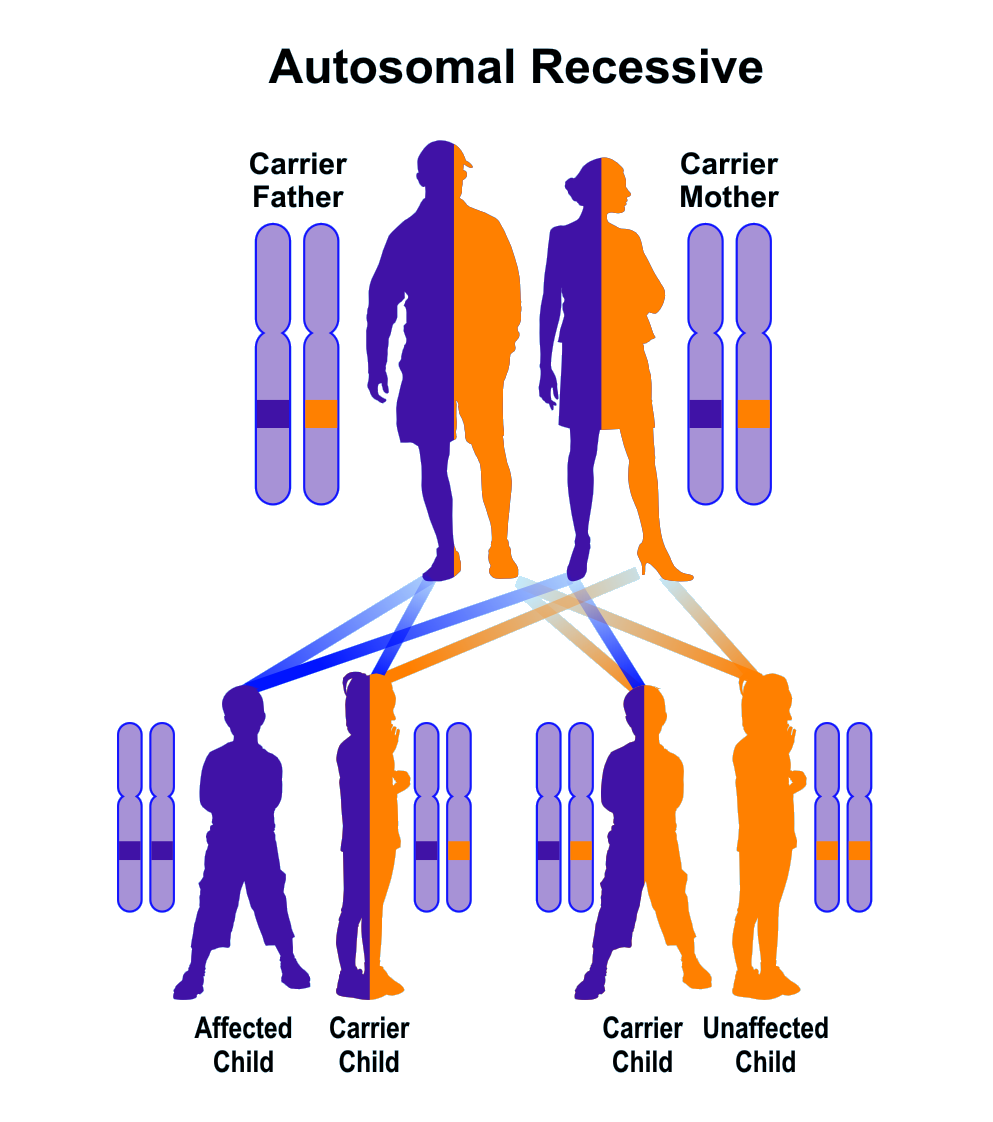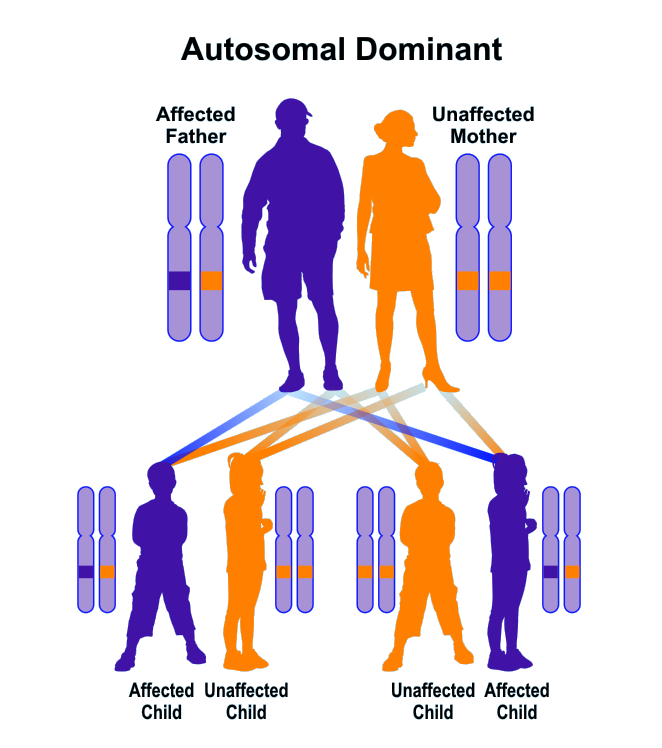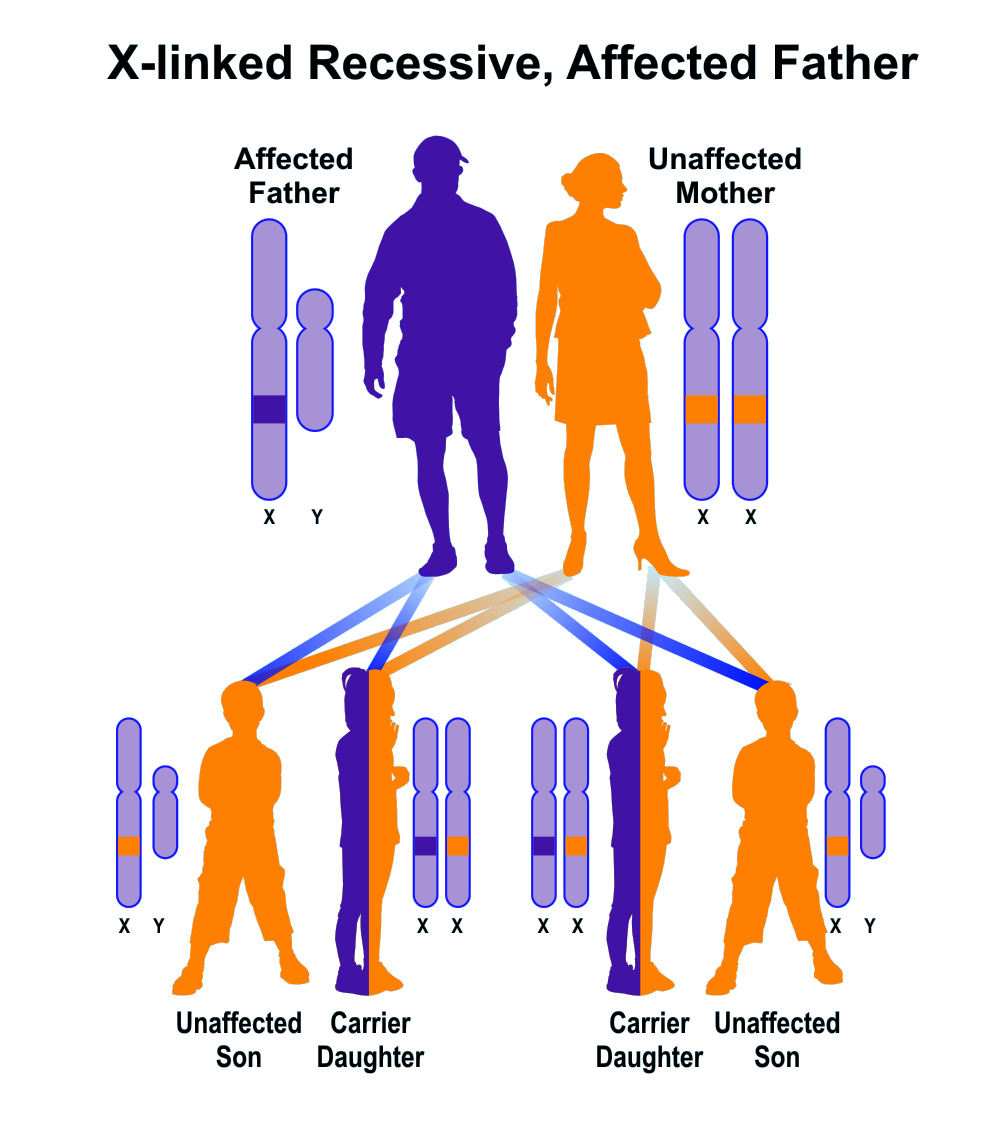There are five primary human genetic traits and conditions caused by mutant alleles or chromosomal alterations which include:
- Autosomal Recessive Inheritance
- Autosomal Dominant Inheritance
- X-Linked Inheritance
- Changes in Chromosome structure
- Changes in Chromosome number
AUTOSOMAL DOMINANT INHERITANCE : The allele that cause the trait is dominant and people who are either homozygous or heterozygous for the dominant trait allele are affected. Individuals homozygous for the recessive normal allele are unaffected.
X-LINKED RECESSIVE INHERITANCE: Occur from traits due to inheritance of recessive alleles carried on the X chromosome. Note that males are more likely to develop X-linked recessive inheritance as they only require one X chromosome as compared to females who require 2.
GENETIC COUNSELLING
GENETIC COUNSELLING allows for future parents to assess the possibilities that they might have an affected child. Genetic counselling begins with the identification of parental genotypes through family pedigrees or direct testing for an altered protein. Genetic counselling can also be combined with techniques of PRENATAL DIAGNOSIS in which cells derived from developing embryo or its surrounding tissues or fluids are tested for the presence of mutant alleles or chromosomal alterations. These include:
- Amniocentesis: Cells are obtained from amniotic fluid- the watery fluid surround the embryo in the mother's uterus
- Chorionic villus sampling : Cells are obtained from portions of the placenta that develop from tissues of the embryo.




No comments:
Post a Comment